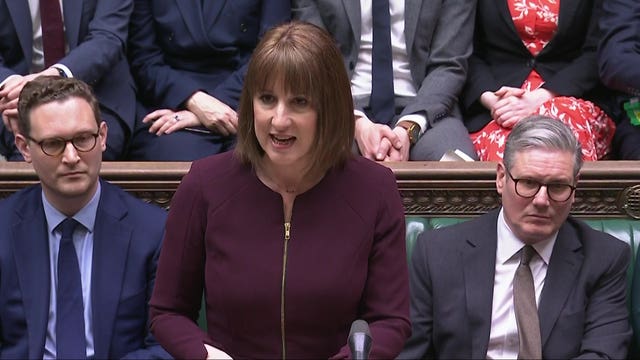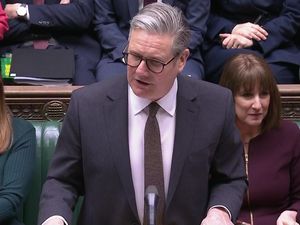Industry figures call for further investment in AI to boost UK economy
Chancellor Rachel Reeves used her spring statement to announce plans for more investment in AI technology for the public sector and defence.

Industry figures have called on the Government to go further in backing emerging technologies, after the Chancellor announced plans to invest more in artificial intelligence technologies across the Civil Service and defence.
Rachel Reeves used her spring statement to a £3.25 billion Transformation fund, which in part will be used to drive efficiency in the public sector by encouraging the adoption of AI tools to cut costs and boost productivity.
Ms Reeves also announced a £2.2 billion defence spending hike over the next year from April, including a ringfenced 10% to fund new high-tech weaponry, such as drones, autonomous systems and AI-powered capabilities.
The commitments to fund more AI technology development echoes plans announced earlier this year by the Prime Minister in the AI Opportunities Action Plan, which pledged to make the UK a global AI “superpower” and boosting the economy by investing in AI infrastructure and also improving workplace productivity by adopting more AI tools.
In response to the latest announcements, Feargus MacDaeid, co-founder of AI legal tech firm Definely, said the Government still needed to go further to ensure the UK was not left behind.
“The future growth of the UK’s economy hinges on its capacity to innovate and leverage cutting-edge technologies,” he said.
“However, this requires stability in policy frameworks and a clear strategic vision, particularly around frontier technologies such as AI.
“A more clearly defined national AI strategy, with substantial funding commitments for innovation, infrastructure, and, crucially, fundamental research, is essential.
“These frontier technologies are increasingly vital to our national interest, and failing to support risk-taking and cutting-edge research risks ceding leadership to other nations.
“Government support is essential to catalyse private investment, encourage bold innovation, and attract global talent, which is critical to ensuring the UK remains competitive in this rapidly evolving landscape.”

Andrew Warren, chief commercial officer at IT service provider Node4, said: “The country is currently navigating choppy waters, driven by geopolitical uncertainties and economic constraints, but we need to look forward, rather than backwards.
“We are at a generational tipping point with the ubiquity of technology that is really interesting and exciting.
“Utilising the latest AI tools, amplified by sophisticated cloud and networking technologies, businesses, the Government, and the country as a whole can drive efficiencies and become more productive, exactly what the UK needs to achieve economic growth.
“The last time we had this opportunity was with the rise of the World Wide Web 30 years ago, where people realised that it could radically change the way we work.
“The Government showed us today that it recognises this opportunity and identified key areas where AI can be used to make productivity improvements across the country, specifically within the public sector.
“Driving efficiencies and improving productivity is how we will achieve economic growth.
“But it is not enough to only recognise the moment with talk and promises.
“The Government needs to be leading the way.
“By embracing these technologies and demonstrating its tangible benefits, it can encourage businesses to follow suit, and improve productivity across the country.
“This Government talks a lot about regulation around curation, but instead it needs to focus on facilitating and nurturing the opportunity presented by AI, not regulating and controlling it so that its power is reduced.”





